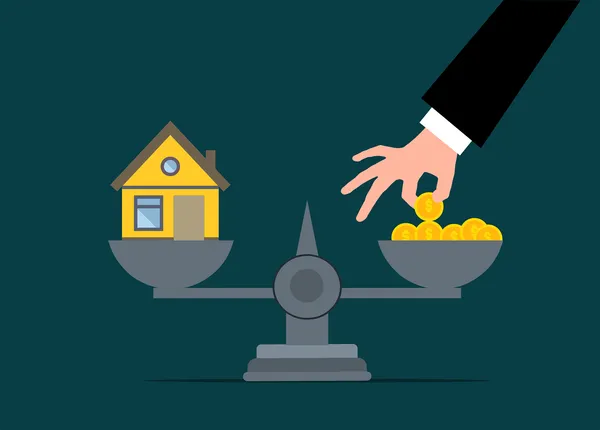For Home Sellers

How to Choose a Real Estate Agent to Sell Your Home
An average agent will take a reactive approach to selling your home. They will put a sign up outside, take some photos, chuck it online and wait for the phone to ring. Their focus is on selling your home as quickly as possible, so they can bank a commission. They might get lucky and find a buyer quickly, but if that doesn’t happen, they are often short on ideas when it comes to figuring out Plan B.
The salesperson you need to hire to get a premium price is one who has a database of clients looking in your area. One who understands the key target market for your property and can employ a proven strategy to attract the right buyers and encourage competition between them. Kerwin’s Real Estate Agency has been selling homes in the Greater Beloit Area since 1950. And, they can sell yours.
Their focus is on selling your home for the best possible price.
Real estate salespeople are not a commodity. They are not all created equal.
It’s just like any other profession. You get good doctors and not so good ones. Good lawyers and not so good ones. The cheapest agent is not always the best option and can cost you a lot more in the long run. Would you want to be operated on by an in-experienced surgeon? Would you hire the cheapest mechanic to work on your classic car?
Most agents sound impressive in an interview situation and everyone can tell you about a great result they had at some point. So how do you work out if they are the right agent for you? Here are some key questions to ask:
- Who do you think is the target market for your property?
- What is the best way to reach those people?
- What features are those buyers looking for?
- What’s the best way to create a competitive situation?
- Tell me about a property you marketed that was hard to sell.
- What happened?
- How did you solve that problem?
Every seller expects their home to sell in its first few weeks on the market. While this does happen in many circumstances, some houses take a little longer to find their ideal buyer. It’s important that you discuss this potential outcome at the very start of the process, so everyone is on the same page if the need arises for a Plan B.
Frequently Asked Questions
You want to get the most out of the sale of your home, so it’s natural to have questions about the process. Kerwin’s Agency is here to help guide you through this process, and when working with us to sell your home, we’ll be able to answer your questions about selling your house or property in-depth.
In the meanwhile, below are some frequently asked questions in regards to selling your house, property, or home, which will hopefully give you some insight into various steps of the process!
1 How do I determine the right asking price for my home?

Determining the right asking price for your home can be a complex process, as it involves considering various factors such as the current housing market, comparable home sales in your area, and any unique features or upgrades to your home. Here are a few steps you can take to help determine the right asking price for your home:
Research the housing market in your area: Look at recent home sales in your neighborhood and comparable homes currently on the market. This will give you an idea of the current market conditions and what buyers are willing to pay for similar homes.
Look at comparable home sales: Look at the prices of homes that are similar to yours in terms of size, age, condition, and location. These are often referred to as “comps” and can be found through online resources such as the Multiple Listing Service (MLS) or by working with a real estate agent.
Consider any unique features or upgrades: If your home has any unique features or upgrades, such as a pool, home office, or upgraded kitchen, you should factor that into the asking price.
Get a professional appraisal: You can also consider getting an appraisal done by a professional appraiser who will provide you an unbiased opinion on the value of your property.
Consult with a real estate agent: An experienced real estate agent can help you to determine the right asking price for your home based on their knowledge of the local market and their experience with comparable home sales.
Remember, a home’s market value is not always the same as the price you want for your home, but if you price your home competitively, you increase the chances of your home selling quickly and at a good price.
2 How long does it typically take to sell a home?
The length of time it takes to sell a home can vary depending on a number of factors, including the housing market conditions, the price of the home, and the condition of the home.
In a strong seller’s market with high demand, homes may sell quickly, sometimes within a few weeks or even days. In a buyer’s market with less demand, it may take longer to sell a home.
On average, most homes take between 60-90 days to sell. However, it’s important to note that the actual time it takes to sell a home can be affected by factors such as location, home condition, and pricing. Homes that are priced competitively, in good condition, and located in desirable areas will generally sell faster than those that are not.
It’s also important to remember that the home selling process doesn’t end with the home going under contract, it also depends on how smoothly the closing process goes and that can add additional time to the process.
Keep in mind that working with an experienced real estate agent can help you to better understand the local market conditions and can assist you in pricing your home competitively to increase the chances of a quick sale.
3 How do I prepare my home for sale?

Preparing your home for sale can be a vital step in getting your home sold quickly and at the best price possible. Here are a few steps you can take to prepare your home for sale:
- Clean and declutter: Clean your home thoroughly and remove any clutter. This will make your home look more spacious and appealing to potential buyers.
- Make repairs: Fix any repairs that are needed around the house, such as leaky faucets, cracked tiles, or worn-out carpeting.
- Update and improve: Make any necessary updates or improvements, such as painting the walls, replacing old light fixtures, or upgrading the kitchen or bathroom.
- Stage your home: Stage your home by arranging furniture and decor in a way that highlights the best features of your home. This can be done by yourself or with the help of a professional stager.
- Clean up the exterior: Make sure the exterior of your home is clean and well-maintained. This includes the lawn, landscaping, and exterior of the house.
- Take professional photos: Hire a professional photographer to take high-quality photos of your home that will be used in the listing and online.
- Get an inspection: Have a professional home inspector come and inspect your home, and address any issues that are found.
- Get a pre-inspection report: This can help you identify any issues that may come up during the home inspection process, and it also shows buyers that you have taken the initiative to have your home inspected.
By taking the time to properly prepare your home for sale, you can make a great first impression on potential buyers and increase the chances of a quick sale at the best price possible.
4 What is the process for selling a home?
The process for selling a home typically involves the following steps:
- Preparing your home for sale: This includes cleaning, decluttering, making repairs, and staging your home to make it more appealing to potential buyers.
- Pricing your home: Determining the right asking price for your home involves researching the housing market, looking at comparable home sales in your area, and considering any unique features or upgrades to your home.
- Marketing your home: This includes listing your home on the Multiple Listing Service (MLS), creating a listing online, and promoting your home through various marketing channels, such as open houses, brochures, and online ads.
- Showing your home: This includes scheduling and conducting showings of your home to potential buyers and their agents.
- Receiving and evaluating offers: This involves receiving offers from buyers and evaluating the terms and conditions of each offer.
- Negotiating the sale: This includes negotiating the final price, closing costs, and other terms of the sale with the buyer.
- Closing the sale: This includes completing all necessary paperwork and transferring the title of the home to the buyer.
- Move out: Once the closing is completed, the seller will have to move out and hand over the keys to the new owner.
Keep in mind that working with an experienced real estate agent can help you navigate the process of selling your home, from preparing your home for sale to negotiating the final sale.
5 How can I increase the chances of my home selling quickly?
There are several ways to increase the chances of your home selling quickly, including:
- Pricing it correctly: Pricing your home correctly from the start will attract more potential buyers and increase the likelihood of a quick sale.
- Staging your home: Staging your home with furniture and decor can help potential buyers envision themselves living in the space and make it more attractive.
- Marketing your home: Your real estate agent should have a marketing plan in place to showcase your home to potential buyers, including professional photography, virtual tours, and online listing.
- Making small repairs: Fixing any small repairs, such as leaky faucets or peeling paint, will make your home more appealing to potential buyers.
- Being flexible: Being flexible with showings and open houses will increase the chances of potential buyers seeing your home.
- Be prepared to negotiate: Be prepared to negotiate on price and terms with potential buyers to increase the chances of a quick sale.
6 What are the costs associated with selling a home?
There are several costs associated with selling a home, including:
- Real estate agent commission: This is typically a percentage of the final sale price and is paid to the agent or brokerage that sells your home.
- Closing costs: These include costs such as title insurance, escrow fees, and transfer taxes.
- Repairs and upgrades: You may need to make repairs or upgrades to your home before listing it for sale, such as painting, landscaping, or fixing appliances.
- Staging costs: If you choose to stage your home, you may need to pay for furniture rental, decor, and other staging expenses.
- Marketing expenses: Your real estate agent may charge a fee for marketing expenses such as professional photography, virtual tours, and online listing.
- Legal fees: You may need to pay for legal services, such as drafting a sales contract or reviewing title documents.
- Home warranty: Some sellers offer a home warranty to buyers for extra peace of mind, which will cost extra money.
It is essential to work with your real estate agent to understand all costs associated with selling your home and to have a clear idea of the total expenses to be paid by you.
7 What documents do I need to provide to potential buyers?
When selling a home, you will need to provide potential buyers with several important documents, including:
- Property disclosures: These documents provide information about the condition of the property, including any known defects or issues.
- Title documents: These documents prove your ownership of the property, including the title report, title insurance policy, and any outstanding mortgages or liens.
- Homeowner association (HOA) documents: If your property is part of an HOA, you will need to provide the buyer with information about the HOA’s rules and regulations, as well as any fees associated with being a member.
- Utility bills: You will need to provide the buyer with copies of recent utility bills, such as electric, gas, water, and waste management.
- Home inspection reports: If you have had a home inspection done, you will need to provide the buyer with a copy of the report.
- Building permits: If you have done any recent renovations or additions to the property, you will need to provide the buyer with copies of any building permits.
- Lead-based paint disclosure: If the property was built prior to 1978, you will need to provide the buyer with a lead-based paint disclosure form.
- Termite inspection report: If the property is located in an area prone to termite infestations, you will need to provide the buyer with a termite inspection report.
It’s important to work with your real estate agent and/or attorney to ensure that all the necessary documents are provided and that they are accurate and up to date.
8 How do I negotiate with buyers?

Negotiating with buyers can be a complex process, but there are several strategies you can use to make the process go smoothly:
- Be prepared: Before starting negotiations, have a clear idea of your bottom line and be prepared to justify your asking price. Review comparable sales in the area, understand the market trends and have a good understanding of the home’s features and benefits.
- Be willing to compromise: Be open to making concessions, such as including appliances or making repairs, but also be prepared to stand firm on issues that are important to you.
- Communicate clearly: Clearly and calmly communicate your position to the buyer and be willing to listen to their perspective.
- Seek professional advice: Work with a real estate agent or attorney who can help guide you through the negotiation process and provide valuable advice.
- Be open to alternative solutions: Be open to alternative solutions, such as a rent-to-own option or a delayed closing date.
- Keep emotions out of it: Try to keep emotions out of the negotiation process and focus on the facts and figures.
- Set deadlines: Set deadlines to make decisions and close the deal, this will help to avoid the negotiation process dragging on.
- Be ready to walk away: Be prepared to walk away from a deal if it does not meet your terms, but also be ready to act fast if a buyer makes a fair offer.
It’s important to remember that negotiation is a process, and it’s not uncommon for it to take multiple rounds of offers and counteroffers before a deal is reached.
9 How do I handle multiple offers on my home?
Handling multiple offers on your home can be a complex process, but there are several strategies you can use to make the process go smoothly:
- Review all offers carefully: Review all offers carefully and compare them based on price, contingencies, closing date, and terms.
- Communicate with all buyers: Communicate with all buyers and let them know you have received multiple offers. This will help to avoid confusion and ensure that all parties are aware of the situation.
- Seek professional advice: Work with a real estate agent or attorney who can help guide you through the process and provide valuable advice.
- Consider the buyer’s qualifications: Consider the buyer’s qualifications, such as their ability to obtain financing, when evaluating offers.
- Look beyond the price: Look beyond the price when evaluating offers. For example, a buyer who is willing to close quickly or has a small number of contingencies may be more attractive than one with a higher price but longer closing date.
- Be prepared to make a quick decision: Be prepared to make a quick decision once you have reviewed the offers and have chosen the one that best meets your needs.
- Be transparent: Be transparent with all buyers and let them know that you have received multiple offers and that you are reviewing them.
- Keep emotions out of it: Try to keep emotions out of the process and focus on the facts and figures.
It’s important to work with a real estate agent or attorney to ensure that you are handling multiple offers on your home correctly and to make sure that you are making the best decision for you and your family.
10 What are closing costs and who pays them?
Closing costs are fees and expenses that are associated with purchasing a property. These costs can include things like title insurance, appraisal fees, attorney’s fees, and lender’s fees. They can vary depending on the location and type of property, as well as the type of loan that is being used to purchase the property.
Typically, the buyer is responsible for paying closing costs, but in some cases, the seller may agree to pay a portion or all of the costs as part of the sales agreement.
11 How do I stage my home to appeal to buyers?
There are several ways to stage a home to appeal to buyers. Here are a few tips:
- Declutter: Remove personal items and excess furniture to create a more spacious and open feel.
- Neutralize: Neutralize the decor by painting walls neutral colors and removing bold wallpapers.
- Depersonalize: Remove personal photographs and other personal items to make it easier for buyers to imagine themselves living in the space.
- Update: Make repairs and updates to the property, such as fixing leaks, replacing old fixtures and updating the lighting.
- Clean: Thoroughly clean the entire property, including the carpets, windows, and appliances.
- Organize: Organize closets, cupboards, and storage spaces to make them look more spacious.
- Curb appeal: Make sure the outside of the property is well-maintained, with a well-manicured lawn and landscaping.
- Lighting: Make sure the property is well-lit, open curtains and turn on lights during showings.
- Furnish: Consider hiring a stager to bring in furniture and decor, if your home is empty.
- Show off the best features: Highlight the best features of your home, like a fireplace, hardwood floors, or a great view.
By following these tips, you can help make your home more attractive to potential buyers.
12 What is a home warranty and should I offer one?
A home warranty is a service contract that covers the repair or replacement of certain home appliances and systems, such as HVAC, plumbing, and electrical systems. The coverage typically lasts for one year and can be renewed.
When you are selling your home, you may choose to offer a home warranty to potential buyers as a way to provide added peace of mind and to show that you are confident in the condition of your home. Offering a home warranty can also be a way to set your home apart from others on the market.
It’s important to note that a home warranty is different from homeowner’s insurance and it is not mandatory. It is optional and an additional cost to the home buyer. So, you should weigh the pros and cons of offering a home warranty and decide if it makes sense for your specific situation.
It’s also worth considering the cost of the home warranty and if it’s worth the expense. You can shop around for different home warranty companies and compare their coverage and pricing options.
13 How do I handle a lowball offer?
Handling a lowball offer can be difficult, but there are a few strategies you can use to respond to it. Here are a few tips:
- Don’t take it personally: Remember that a lowball offer is a common part of the negotiation process and it does not reflect on you or your home.
- Be professional: Respond to the offer in a professional and courteous manner.
- Counter-offer: Consider making a counter-offer that is more in line with your asking price. Be willing to negotiate, but also be firm about your bottom line.
- Provide supporting documents: Provide the buyer with any relevant documents that support the asking price, such as a recent appraisal or home inspection report.
- Take your time: Don’t feel pressured to respond immediately. Take the time you need to consider the offer and weigh your options.
- Consider the reasons: If the offer is particularly low, try to understand the reasoning behind it. For example, if the buyer has a contingency that makes the offer conditional, it might be a good idea to consider it.
- Walk away: If the offer is significantly lower than your asking price and the buyer is not willing to negotiate, you may choose to reject the offer and move on to other potential buyers.
Ultimately, the decision of how to handle a lowball offer is yours, and it will depend on your specific circumstances and goals. It’s important to keep in mind that the goal is to sell the property and getting the best price possible, however be ready to be flexible.
14 How do I prepare for a home inspection?
A home inspection is an important step in the process of selling a home. It gives potential buyers a professional evaluation of the condition of the property and can help identify any issues that may need to be addressed. Here are a few tips to help you prepare for a home inspection:
- Be present: Be present during the inspection and be prepared to answer any questions the inspector may have about the property.
- Make repairs: Fix any minor repairs that you are aware of before the inspection. This can include things like leaky faucets, loose doorknobs, and cracked tiles.
- Clean: Thoroughly clean the entire property, including the carpets, windows, and appliances.
- Prepare the attic and crawl spaces: Make sure that the inspector has access to the attic and crawl spaces, and that they are clean and well-organized.
- Make sure appliances are working: Make sure that all appliances are in working order and that they can be easily accessed by the inspector.
- Provide access: Make sure that the inspector has access to all areas of the property, including the basement, the attic, the garage, and any outbuildings.
- Provide documentation: Provide the inspector with any relevant documentation, such as previous home inspection reports, maintenance records, and warranty information.
- Be ready to explain: Be prepared to explain any issues that the inspector may find, and be ready to provide any additional information or documentation that may be needed.
By preparing for a home inspection in advance, you can help ensure that the process goes smoothly and that any issues that are identified can be addressed in a timely manner.
15 How do I handle contingencies in a home sale?
A contingency is a condition that must be met before a home sale can be completed. Contingencies can include things like the sale of the buyer’s current home, the obtaining of a mortgage, or the passing of a home inspection. Here are a few tips to help you handle contingencies in a home sale:
- Understand the contingencies: Make sure you understand the contingencies that are included in the purchase agreement and what is required for them to be met.
- Communicate with the buyer: Communicate with the buyer about the status of the contingencies and any concerns or issues that may arise.
- Be flexible: Be willing to be flexible and work with the buyer to find solutions to any problems that may arise.
- Review the deadlines: Review the deadlines for the contingencies, so you know when they need to be met and when the buyer needs to take action.
- Don’t pressure the buyer: Don’t pressure the buyer to meet the contingencies before they are ready. Give them the time they need to fulfill their obligations.
- Be prepared for contingencies to be removed: Be prepared for the contingencies to be removed by the buyer, which means they will be buying the property regardless of the outcome of the contingency.
- Consult a professional: Consult with a real estate professional or attorney if you have any questions or concerns about the contingencies.
It’s important to remember that contingencies are put in place to protect both the buyer and the seller, and by working together, you can help ensure that the sale goes smoothly and that any issues that arise can be resolved in a timely manner.
16 How do I deal with difficult buyers or their agents?
Dealing with difficult buyers or their agents can be challenging, but there are a few strategies you can use to manage the situation. Here are a few tips:
- Keep a positive attitude: Try to maintain a positive attitude, even if the buyer or their agent is being difficult. This can help to defuse the tension and keep the situation from escalating.
- Communicate clearly: Communicate clearly and effectively with the buyer or their agent. Be clear about your needs, your expectations, and your limitations.
- Be responsive: Be responsive to the buyer or agent’s requests and concerns, and try to address them in a timely and professional manner.
- Be flexible: Be flexible and willing to compromise when necessary. Keep emotions in check: Keep your emotions in check and avoid becoming defensive or argumentative.
- Seek help: If the situation becomes difficult to handle, seek help from your real estate agent, attorney or other professional.
- Set boundaries: Set boundaries and stick to them, if the buyer or their agent is crossing the line, let them know in a polite manner.
- Focus on the goal: Keep in mind that the ultimate goal is to sell the property, and try to stay focused on that goal, rather than getting bogged down in the details of the sale.
By following these tips, you can help to navigate difficult situations with buyers and their agents, and help to ensure that the sale process goes smoothly.
17 How do I handle repairs requested by buyers?
Handling repairs requested by buyers can be a tricky part of the home-selling process. Here are a few tips to help you navigate this situation:
- Understand the request: Make sure you understand the scope of the repairs that the buyer is requesting and the reasons behind the request.
- Be honest: Be honest about the condition of the property and any repairs that may need to be made. If you are aware of any issues, be upfront about them.
- Get professional opinions: If the buyer is requesting repairs that you are unsure about, consider getting a professional opinion from a home inspector or contractor.
- Negotiate: Negotiate with the buyer on the scope of the repairs and the cost. Be willing to compromise and find a solution that works for both parties.
- Prioritize: Prioritize the repairs and address the most important or critical issues first.
- Be fair: Be fair and reasonable when it comes to repairs. If the buyer is requesting repairs that are not necessary or are not in line with the condition of the property, be prepared to explain why.
- Communicate: Keep the lines of communication open with the buyer and their agent throughout the repair process.
- Follow the contract: Follow the terms of the purchase contract and any repair addendums that were agreed upon during the negotiation process.
By handling repairs in a professional and timely manner, you can help to ensure that the sale process goes smoothly and that the buyer is satisfied with the condition of the property.
18 How do I deal with a home that's been on the market for a long time?
Dealing with a home that’s been on the market for a long time can be challenging, but there are a few strategies you can use to help get the home sold. Here are a few tips:
- Review the pricing: Review the pricing of your home and make sure it is in line with similar properties in the area. Consider reducing the price if necessary.
- Re-evaluate the condition: Re-evaluate the condition of your home and make any necessary repairs or updates. It’s important to ensure that your home is in the best possible condition to attract buyers.
- Re-stage: Re-stage your home with fresh and updated decor to make it more attractive to potential buyers.
- Re-assess the marketing strategy: Re-assess your marketing strategy and make sure that your home is being properly promoted to the right audience.
- Consider hiring a new agent: Consider hiring a new real estate agent who can bring fresh perspective, new ideas and new contacts to the table.
- Be flexible on the terms: Be flexible on the terms of the sale, such as closing dates, contingencies and repairs.
- Be open for feedback: Be open for feedback from potential buyers and agents and use it to improve your home’s appeal.
- Be patient: Be patient and remember that the home selling process can take time. It’s important to keep in mind that the real estate market is always changing and a home that didn’t sell today, could sell in the next weeks.
By taking these steps, you can help to increase the appeal of your home and make it more attractive to potential buyers. It’s important to remember that the goal is to sell the property and getting the best price possible, however be ready to be flexible.
19 How do I handle selling a home that's upside down in value?
Selling a home that’s upside down in value (where the outstanding mortgage is greater than the current market value) can be challenging, but there are a few strategies you can use to help get the home sold. Here are a few tips:
- Understand your options: Understand your options and be aware of the alternatives that are available to you, such as short sale, deed in lieu of foreclosure, or a loan modification.
- Contact your lender: Contact your lender and explain your situation, they may be willing to work with you to find a solution.
- Hire a real estate agent: Hire a real estate agent with experience in short sales and distressed properties, they can help you navigate the process and negotiate with the lender.
- Price the property correctly: Price the property correctly, be aware of the market value and price the property accordingly.
- Market the property: Market the property to attract potential buyers.
- Be honest: Be honest with potential buyers about the situation, and let them know that the sale is subject to the lender’s approval.
- Be prepared to negotiate: Be prepared to negotiate with the lender on the price and terms of the sale.
- Be patient: Be patient, as the process of selling a home that’s upside down in value can take longer than a traditional sale.
It’s important to note that the laws and regulations regarding short sales vary by state, and it’s always recommended to consult with a real estate attorney or a financial advisor before making any decisions.






